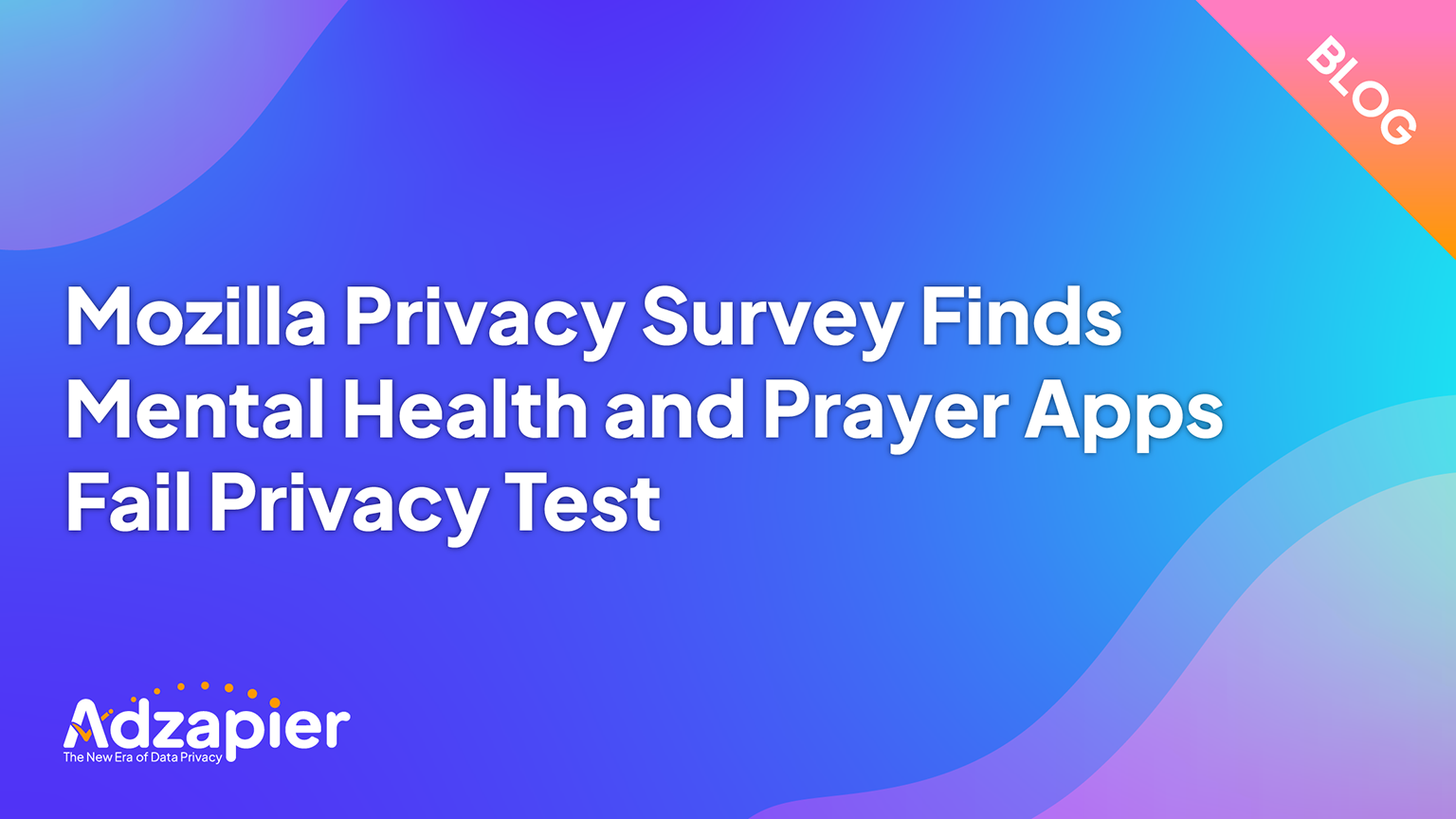
If your tool of choice in the fight against mental health issues is prayer and mental health apps, look away now. Or rather, you shouldn’t until you’ve read this.
What comes to mind when you see the words ‘mental health apps, praying apps, Mozilla privacy test- selling personal data?’ Pretty sure the last thing on your mind is privacy concerns and data breaches from your oasis of hope (mental health and prayer apps). Well, shock on you.
There are as many as 20,000 mental health apps catering to the 11% of the world’s population that lives with mental health conditions.
You’d think that apps geared towards improving a person’s mental and emotional wellbeing would take privacy seriously. It turns out that’s too much to ask.
In a surprising turn of events, a Mozilla privacy test shows that leading mental health and prayer apps are the worst offenders at protecting user privacy. They even go as far as selling personal data to third-party apps.
The Mozilla privacy test went to great lengths to determine which popular apps had appropriate security measures to protect user data by studying 32 apps and slapped a ‘privacy not included with this product’ label on a whopping 28 of them. 25 failed to meet minimum security standards. Ah yes, that’s standard practice ensuring mental health patients have peace of mind.
The set of minimum-security standards Mozilla set in place to measure privacy concerns include:
Security updates
Encryption
Strong passwords
Privacy policy
Vulnerability management
So how does an app acquire Mozilla’s ‘privacy not included with this product’ warning label? If it receives more than two warnings on the following criteria:
How users manage their information
The company’s data security track record
How the app uses the data gathered from customers
Apps that passed the test include Wysa and PTSD Coach. Incidentally, the worst offenders are popular apps Better Help, Youper, Better Stop Suicide, Pray.com, and Talkspace. At this point, it would be easier to mention the least offenders: Hallow and Woebot Health.
Why This Is a Concern
Dodgy, ambiguous, non-existent privacy policies coupled with weak security measures seem to be the modus operandi of these prayer and health apps. They’re not against ‘sharing’ your information with business partners.
Think about the last time you signed up with a mental health app. Some of the information these apps typically ask to include your name, address, age, phone number, and so on. These apps share these sensitive details with Facebook and Google.
Here’s the thing, you trust that mental health or prayer app with your private information. In return, they accurately describe your mental and emotional wellbeing by collecting data on your mental state, moods, and biometric data from different sources. You didn’t sign up for the willy-nilly selling of personal data to third parties.
What to Do to Protect Your Privacy
So, your data isn’t safe with mental health and prayer apps. Now what? Quitting these apps cold turkey may not be the best approach considering studies show that mental health apps positively reduce anxiety and depression.
So, what options do you have when your mental health relies on the support these apps offer? To protect yourself from privacy concerns such as selling personal data and targeted personal ads, use these three tips:
1. Scrutinize their privacy policy
Does the app need you to enter personal information as you sign up? Or perhaps enter sensitive information concerning your health? That makes it even more important to determine how the app will handle your personal information from installation to uninstallation.
Does the app have a clear privacy policy? If not, this means you have no control over where your sensitive information ends up.
If possible, open a different email account to use on these apps. Avoid apps that ask too many personal questions unless you can trust them.
2. Look for proof of quality
What do users and industry professionals have to say about the app? Looking at reviews is a common practice before downloading an app. However, not all reviews are genuine.
Fake app reviews are still a concern, so it’s not a foolproof method to determine an app’s genuineness. However, you can weed out the fake from the real deal by looking for reviews on credible blogs. Also, pay close attention to the critical reviews, not just those praising the app.
3. Beware of bold claims
Before you download that app that claims to “eliminate” anxiety, do due diligence by checking whether these are research-backed claims. There is no one-size-fits-all treatment that eliminates a mental condition.
Whether the app uses self-management strategies or innovative techniques, it must convey where its information comes from transparently.
In closing, it would be wrong to demonize these prayer and mental health apps completely. Sure, some sell personal data, but most positively impact people’s mental and emotional wellbeing. To use these apps safely, pore over their privacy policies to ensure your data stays protected.
Start your data privacy journey with Adzapier’s Free Cookie Site Scanner Tool. Just enter the URL of your website and find out what cookies are being used on your site, understand their purpose, and have actionable insights to update your site’s privacy policy.
